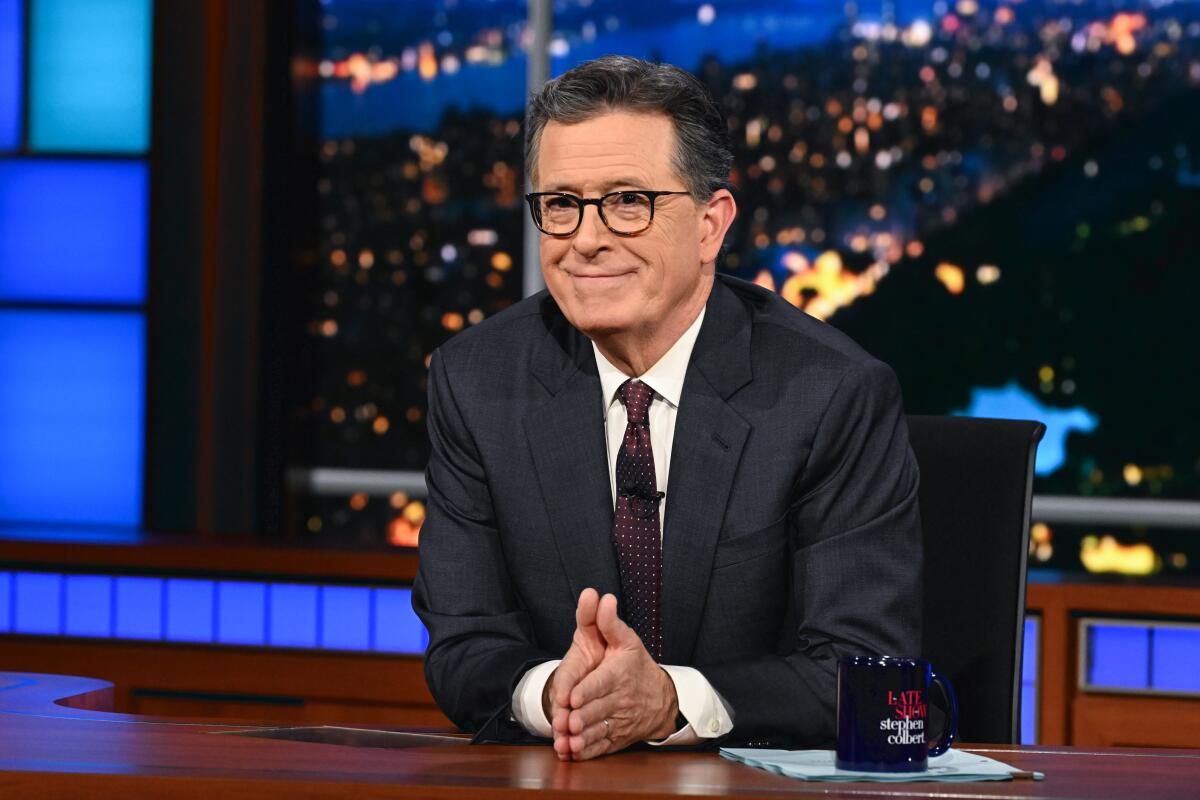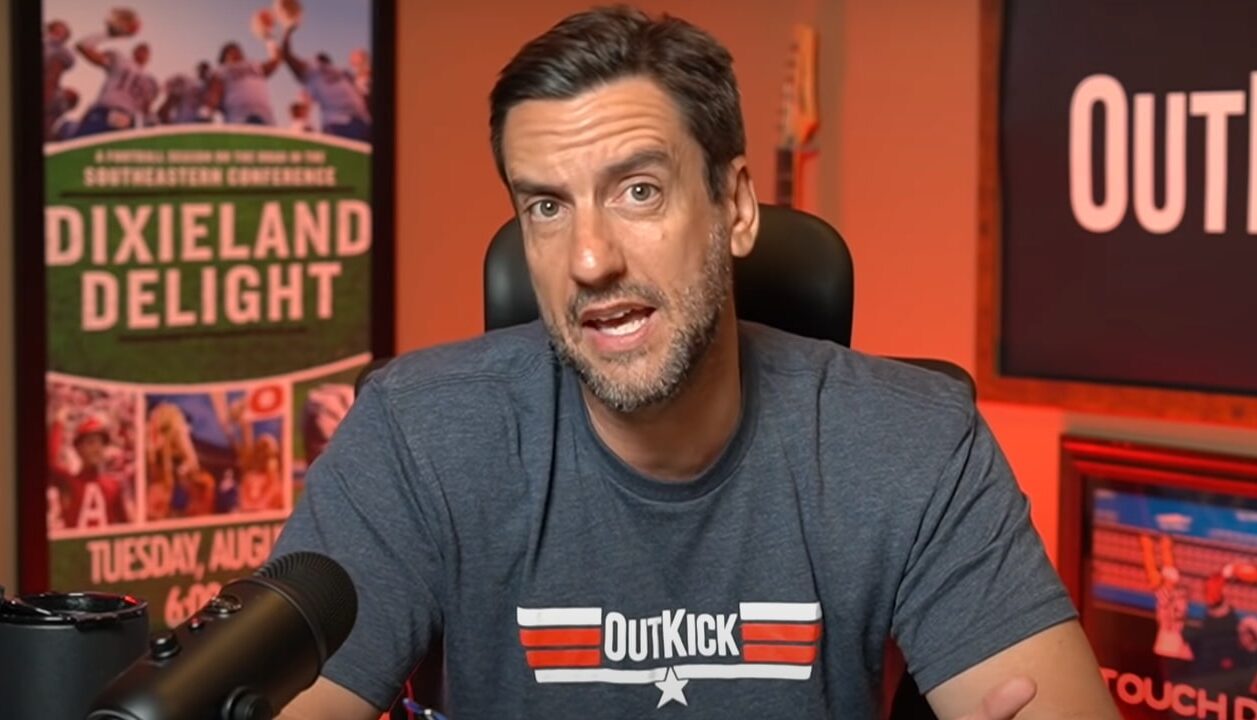Stephen Colbert’s Exit: The Shocking End of Late-Night TV as We Know It?

In an unexpected and dramatic move that has left the entertainment world reeling, CBS announced that The Late Show with Stephen Colbert will be coming to a close next spring. The cancellation of one of the longest-running and most influential late-night shows has not only shocked fans but has raised critical questions about the future of late-night television. Is this the inevitable collapse of a once-iconic format, or is Colbert’s exit just a symptom of a broader, deeper issue plaguing the television industry? What does this mean for the future of late-night programming, and could it signify the dawn of a new era—or the end of an entire chapter?
The End of an Era: Colbert’s Influence and the Rise of Political Satire
Stephen Colbert’s journey from The Colbert Report to The Late Show marked a monumental shift in late-night television. When Colbert took over from the legendary David Letterman in 2015, his sharp political commentary and quick wit quickly made The Late Show a favorite for millions. His comedic genius, especially in the politically charged climate of post-Trump America, solidified his position as a major player in late-night TV. But as with any long-standing cultural icon, the landscape has shifted, and with it, Colbert’s relevance has waned.
In the early years of his tenure, Colbert’s biting satire, particularly aimed at the Trump administration, resonated deeply with liberal audiences. But over time, his show became increasingly partisan, alienating conservative viewers and fragmenting the once unified late-night audience. Critics have noted that Colbert’s political approach, which once gave his show an edge, became more of a liability as America’s political landscape became more polarized. The decline in ratings and the shift away from entertainment-driven humor towards overtly political commentary ultimately led to the show’s cancellation.
As late-night television evolved, Colbert’s show shifted away from the variety and celebrity-centric model that had dominated the genre for decades. His show became more about commentary and less about the entertainment value that had once united viewers across political divides. “The goal of late-night television has always been to bring people together through humor,” a TV analyst commented. “Colbert’s shift to a more politically divisive format hurt his ability to connect with a broader audience. When the political satire becomes one-sided, it alienates a significant portion of your viewers.”
The $16 Million Settlement: Was This the Final Straw?
What many didn’t see coming was the behind-the-scenes drama that may have accelerated Colbert’s departure from The Late Show. The catalyst? A $16 million settlement between CBS’s parent company, Paramount Global, and former President Donald Trump’s legal team. The settlement stemmed from a lawsuit related to CBS’s handling of an interview with Vice President Kamala Harris during the 2024 presidential campaign. The lawsuit alleged that CBS had deceptively edited the interview, causing irreparable damage to Harris’s public image.
Colbert, known for his outspokenness, did not hold back in publicly criticizing his own network. He called the payment a “big fat bribe” and expressed his outrage at how the network had handled the entire situation. “CBS is trying to sweep this under the rug, but this is a huge mistake,” Colbert remarked during one of his late-night monologues. “If we’re going to sell out to appease Trump’s people, we should just close the doors.”
This rare public display of dissent from Colbert was not just about the financial settlement; it was about a broader, more troubling issue within CBS—namely, how the network was handling political content and managing talent. Colbert’s criticism of his network’s corporate decisions led to heightened tensions between him and CBS, possibly pushing the network to pull the plug on The Late Show altogether.
The Changing Landscape: Why Late-Night TV is Struggling
As the entertainment industry continues to evolve, late-night television is facing a crisis of relevance. The rise of streaming platforms like Netflix, Hulu, and YouTube has dramatically changed how viewers consume content. Younger audiences, in particular, are abandoning traditional television in favor of more authentic, unfiltered commentary on digital platforms. Late-night shows, once the primary source of commentary on current events, now find themselves competing with a flood of alternative content that is both more accessible and more tailored to specific audiences.
“The TV landscape has changed, and late-night TV is struggling to keep up,” said media analyst Sarah Wen. “Younger audiences aren’t as invested in traditional late-night shows. They want authenticity, they want unfiltered commentary, and they want to engage with their favorite personalities on platforms that allow them to be more direct and unmediated.”
The rise of social media and on-demand streaming has reshaped the way people experience entertainment, and it’s evident that late-night programming is no longer the go-to source for a large swath of viewers. Colbert’s show, which once captured the zeitgeist of political satire, now seems to be a relic of an earlier era.
The Fall of Traditional Late-Night TV: A Reflection of Broader Industry Struggles
The decline of Colbert’s show also mirrors the struggles facing the entire television industry. The rising costs of producing high-profile programming, coupled with the fragmentation of audience interests, has led to a reevaluation of how traditional networks invest in content. As late-night ratings slip and the demand for on-demand, digital-first content grows, CBS and other networks are facing increasing pressure to adapt or risk falling further behind.
“The decline of late-night programming speaks to the broader issues facing network television,” Wen explained. “Lower ratings, changing viewing habits, and a rising reliance on digital media have forced networks to rethink how they approach content.” As the world moves towards more personalized, digital content, it’s becoming clear that traditional late-night shows are struggling to maintain their foothold in the ever-evolving media landscape.
What’s Next for Late-Night TV? The Future is Uncertain
With Colbert’s departure, the future of late-night television hangs in the balance. The big question is whether the format that has dominated for decades can survive in a world where viewers increasingly turn to streaming platforms for their entertainment. Can the late-night talk show, with its reliance on political humor and celebrity interviews, ever return to its former glory? Or is this the beginning of the end for the traditional late-night format?
Some analysts believe that the future of late-night programming will require a more flexible approach, with a greater focus on variety and diverse content. Political commentary-heavy shows may struggle to maintain viewership, particularly as audiences demand more balanced and entertaining formats.
The rise of digital-first platforms could offer hope for late-night comedy, but traditional networks like CBS will need to adapt quickly to survive. The future of late-night television may lie in embracing new formats, rethinking how content is delivered, and engaging with audiences in ways that traditional formats no longer can.
A New Era or the End of an Icon?
As Colbert prepares to exit The Late Show, the late-night landscape is on the precipice of a major transformation. The question remains: is this the end of an era for late-night TV, or the beginning of something new? With shifting viewer preferences, changing content delivery methods, and increasing polarization in political discourse, it’s unclear where the future of late-night programming lies.
For Colbert, this represents a turning point in his long and illustrious career. Whether he will find a new platform for his political commentary and sharp humor or fade into the background is still uncertain. One thing is clear, though: the world of late-night television will never be the same again. The industry will have to evolve—or risk becoming a relic of the past.
Conclusion: The Future of Late-Night TV Remains in Flux
Stephen Colbert’s exit from The Late Show marks a monumental moment not only in his career but in the history of late-night television. As traditional formats fade and digital-first content rises, the industry faces a crossroads. Will late-night TV evolve to meet the demands of modern audiences, or will it become obsolete, overshadowed by more adaptable and relevant forms of entertainment? Time will tell, but one thing is certain: the landscape of late-night television is changing, and its future remains uncertain.






